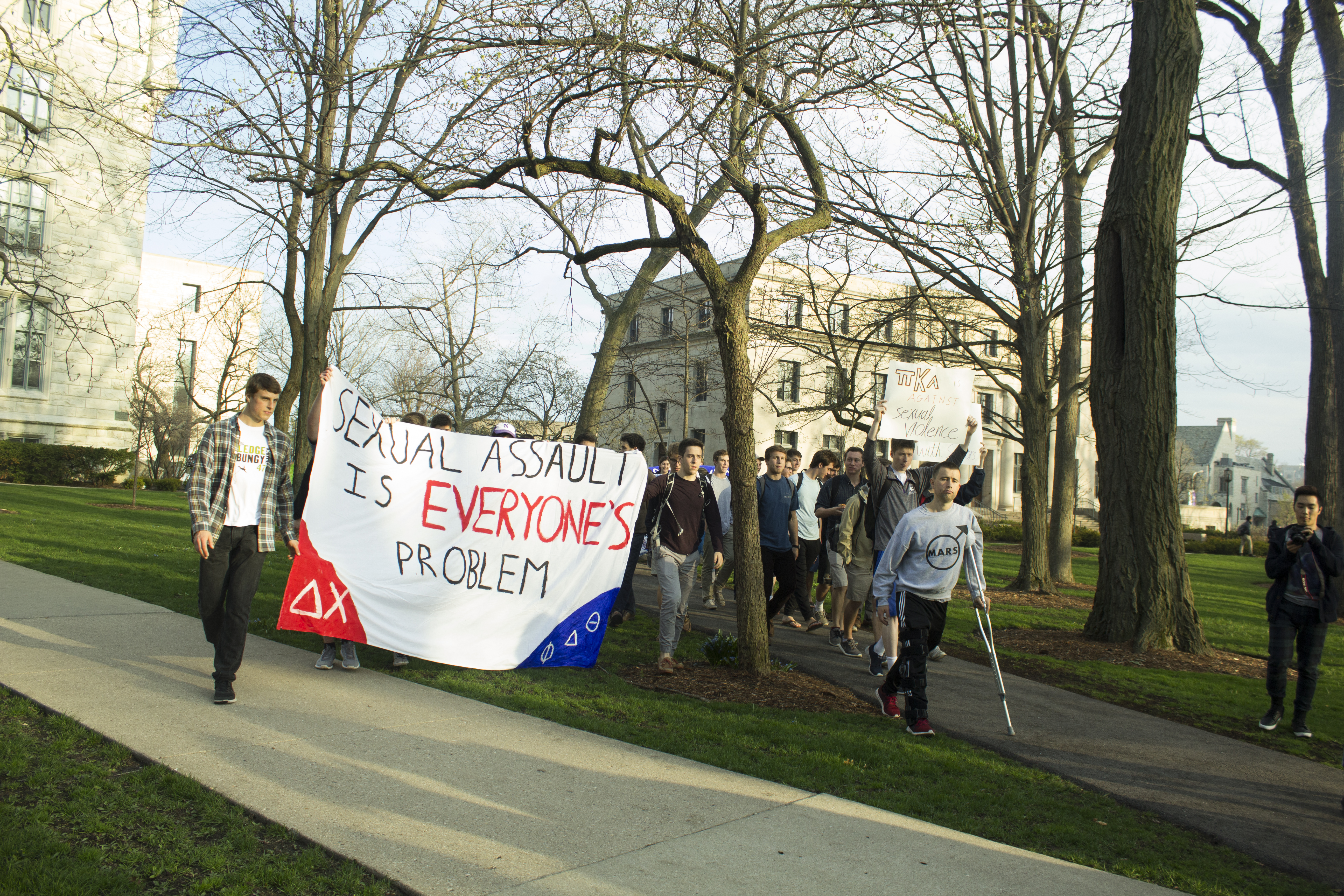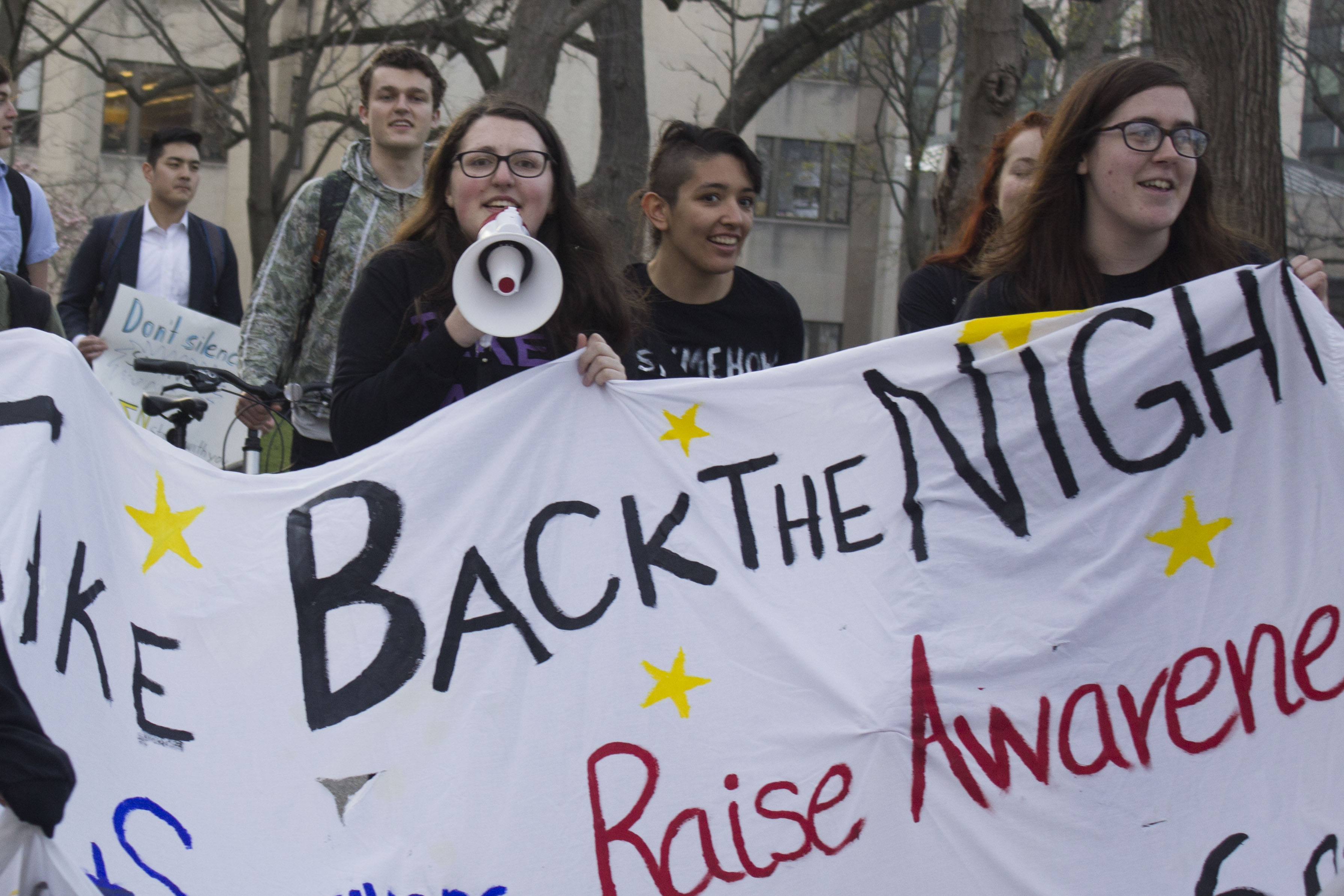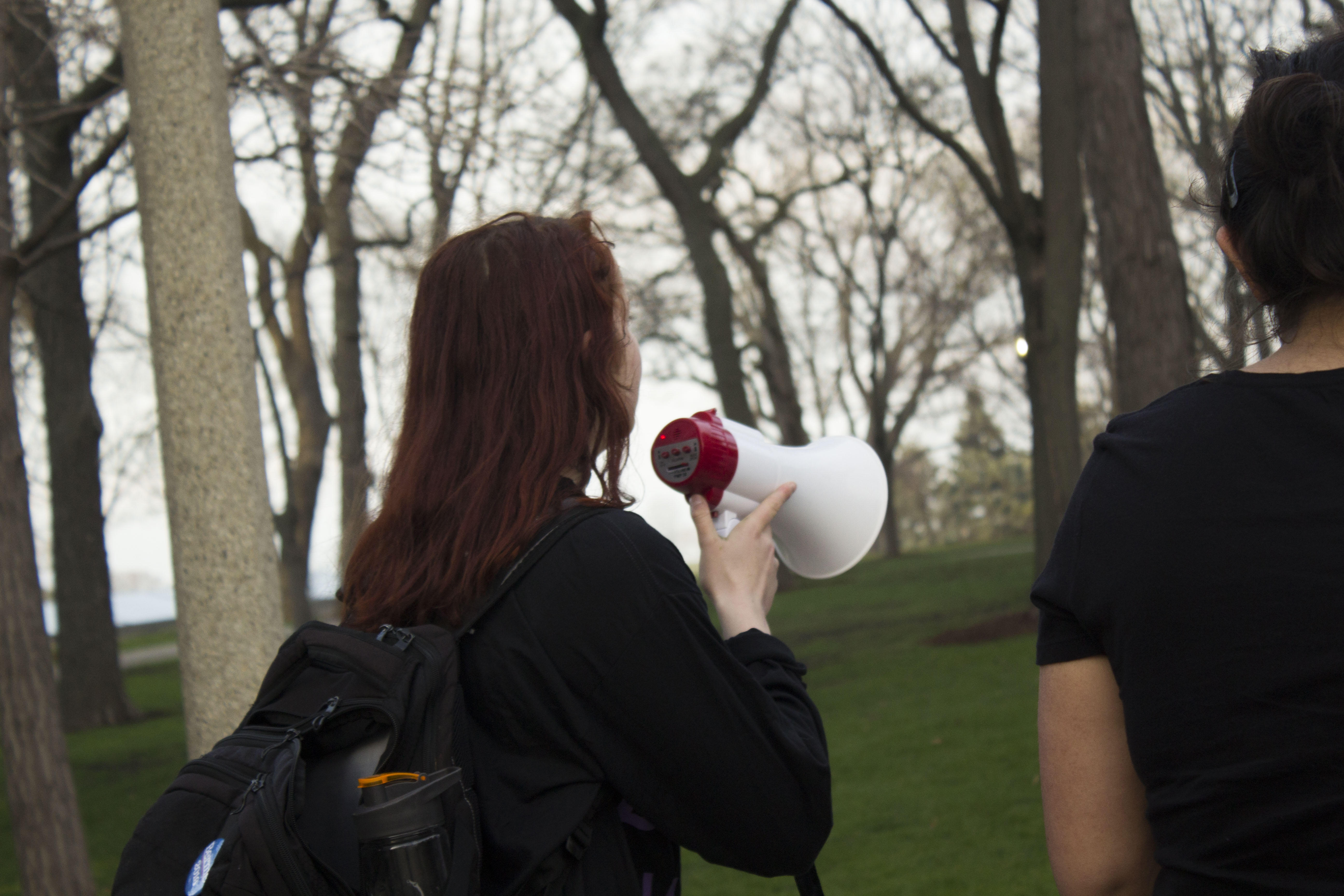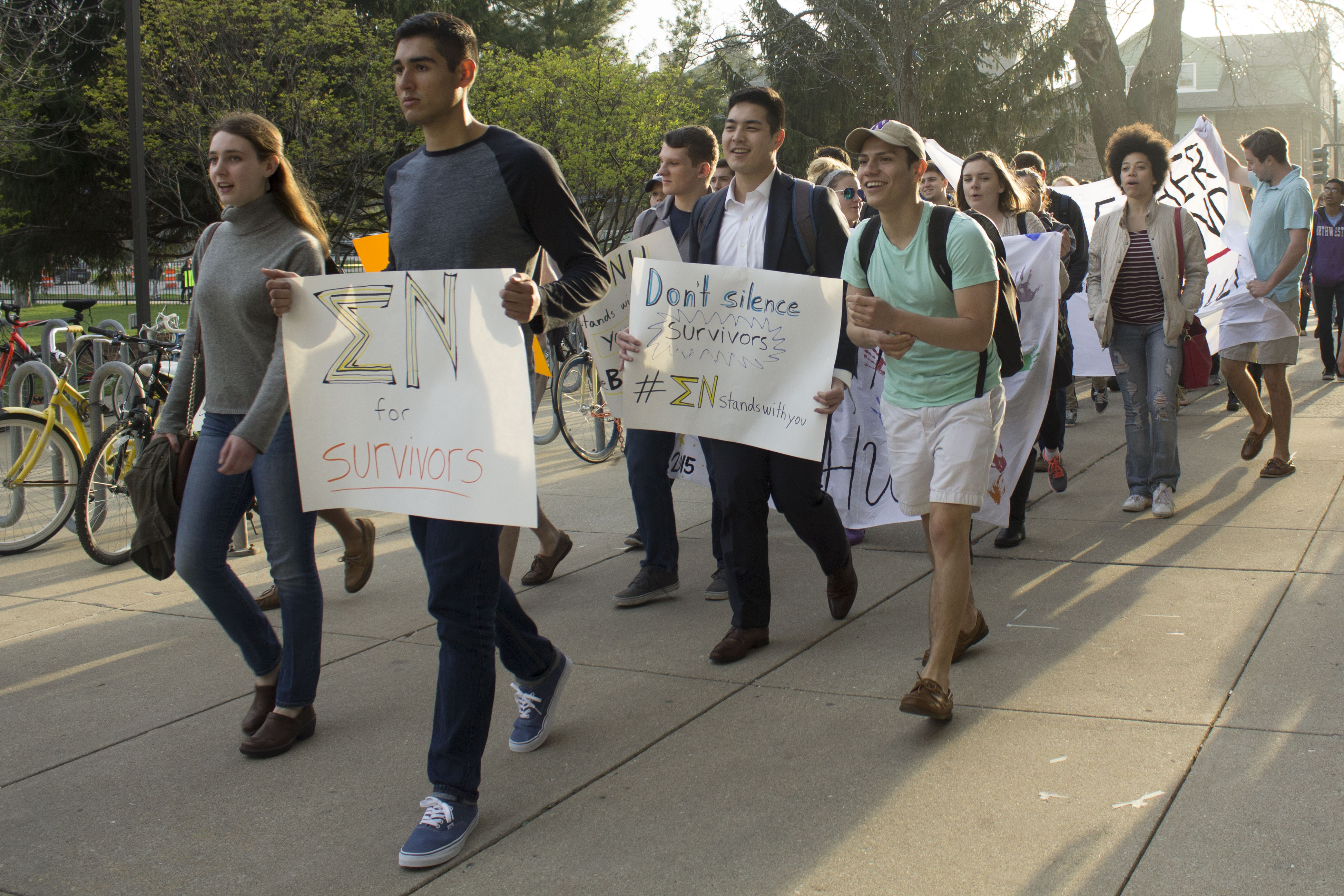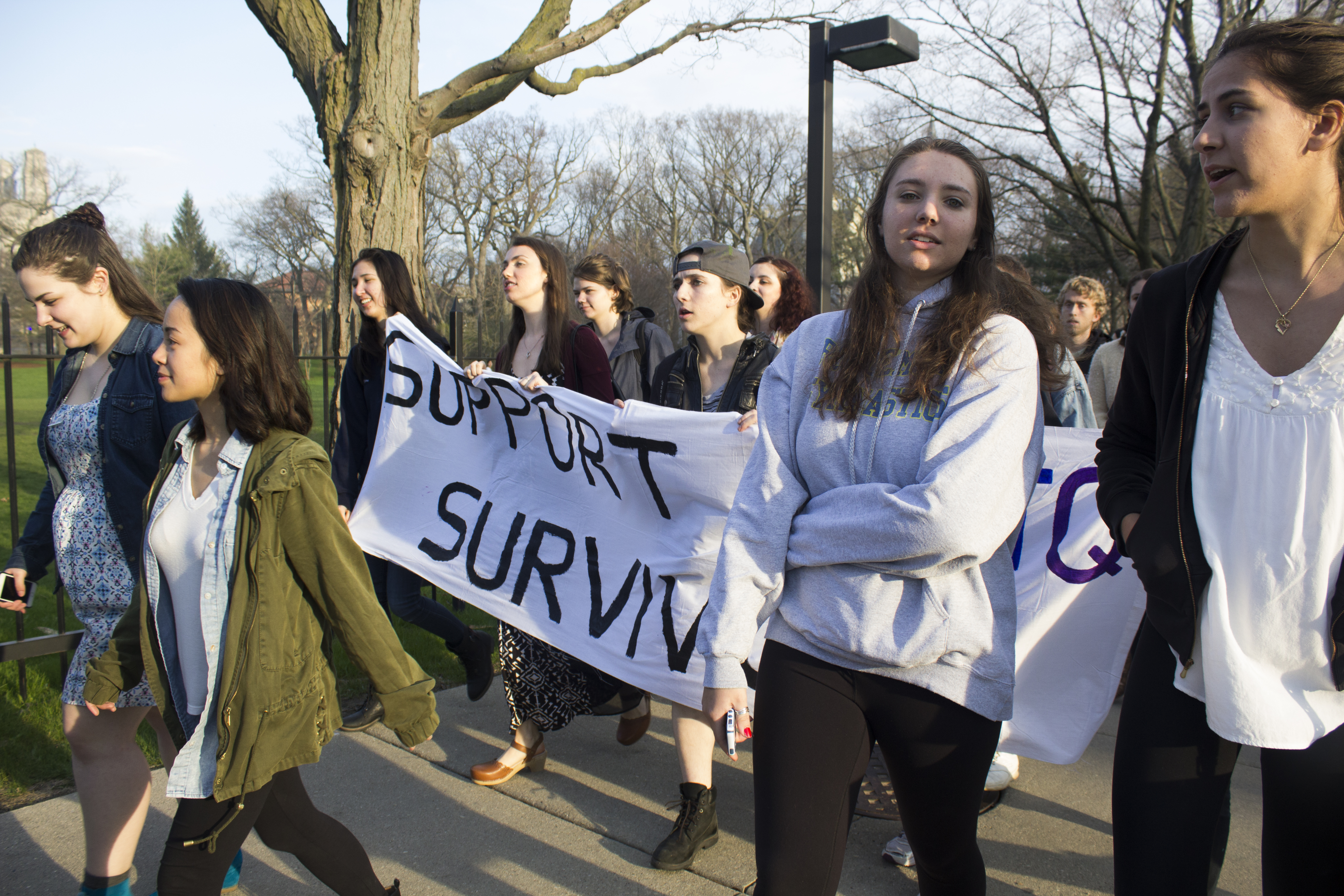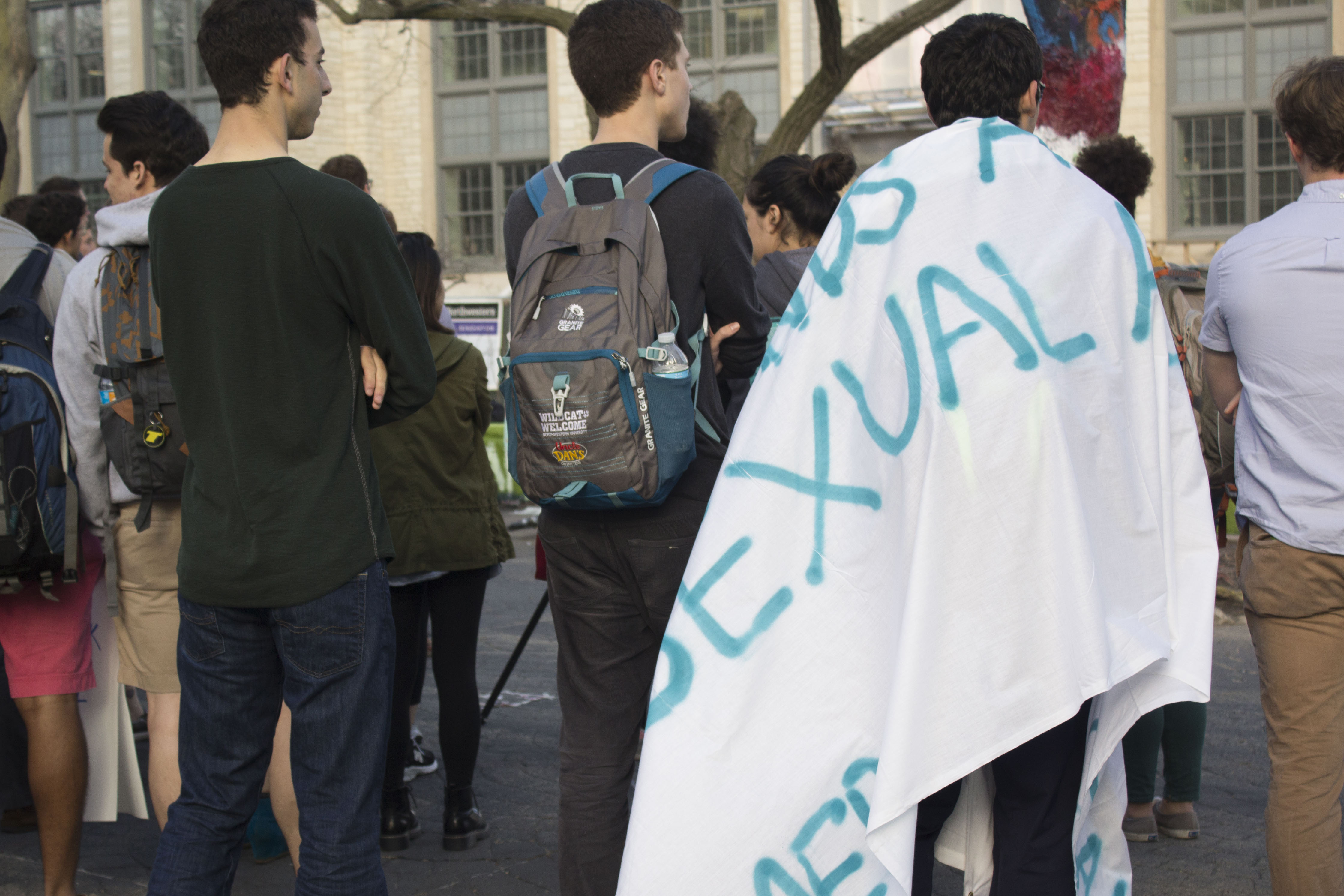Shouts of “Yes means yes, no means no!” echoed across campus just past 6 p.m. on Thursday as an unlikely combination of people marched from the Rock to Norris University Center.
Over 100 students and a number of faculty and staff demanded an end to the stigmatization of sexual assault, as well as more a responsible administrative response at College Feminist’s Take Back the Night March.
Individuals and groups such as LGBTQA+ activists, sororities, and clubs attended the event, along with a number of fraternities, banners in tow.
At the Rock, participants heard from Olivia Ortiz, a sexual assault survivor from the University of Chicago, and then walked down Sheridan Road. They completed the march at Norris, where survivors had an opportunity to share their stories at a “Speak Out" event.
Ortiz urged marchers to think critically about “what you deserve as students and what you should demand from your university.” She said the event is not only about taking back the night, but taking back the campus, too.
“I still struggle everyday to face the effects of what happened to me,” Ortiz said. “[Survivors] are punished for surviving and we shouldn’t be.”
She said a painful part of her story involved the negligence of her university.
“There is no excuse for universities to mistreat [survivors],” she said. “And there is no excuse for universities with acceptance rates as low as ours to have rapists on campus.”
Liam White, a Weinberg sophomore in Men Against Rape and Sexual Assault, was happy that so many men came to support the event.
“In some ways the fact that so many guys are here shows how our work is paying off."
Take Back the Night is a nationwide organization and has chapters on college campuses all over the country, aiming to create a safe community for victims of sexual violence and to end the silence about its prevalence. Northwestern’s campaign is unique in that it runs for a week instead of a night.
Carrie Wachter, the Coordinator of Sexual Violence Response Services and Advocacy at the Center for Awareness, Response and Education at Northwestern, said the week is incredibly powerful, although she said she wishes that awareness lasted longer than one month out of the year.
“I wish that it could be all the time,” said Wachter in an interview earlier in the week. “So often survivors are silenced by our culture, by the way we talk about sexual violence and how the media covers it.”
She also added that “this is one of those events that breaks that silence and allow people to speak up.”
For organizers of the event, who have been working on planning this week for over six months, the four sexual assault reports filed in nine days by Northwestern students earlier this month reminded them why having the week is so important.
“It’s really easy to kind of digest all that information and feel powerless,” said Weinberg junior Arielle Zimmerman, a co-chair of Take Back the Night. “So I think to have a group and to have spaces where people can come together and kind of show solidarity with those who [have been] assaulted and are not sure what to do, especially with the march, is a good way of putting yourself in solidarity with all survivors and people who have experienced some sort of violence.”
Wachter’s response to the recent increase in reports of violence was also optimistic.
“Typically whenever you see reports go off consecutively, it’s a good thing,” she said. “It means more awareness. It doesn’t necessarily mean that more assaults are happening because we see them happen all the time unfortunately and they’re not being reported or talked about. When you see reports start coming, through I think that marks a culture shift.”
Wachter is hopeful that the week's events will continue to provide an impetus for change on campus.
“It starts to normalize talking about sexual violence and break down that stigmatization about it," she said. "There’s big potential for it to help push the momentum of a culture shift and I hope that it’s happening already.”
